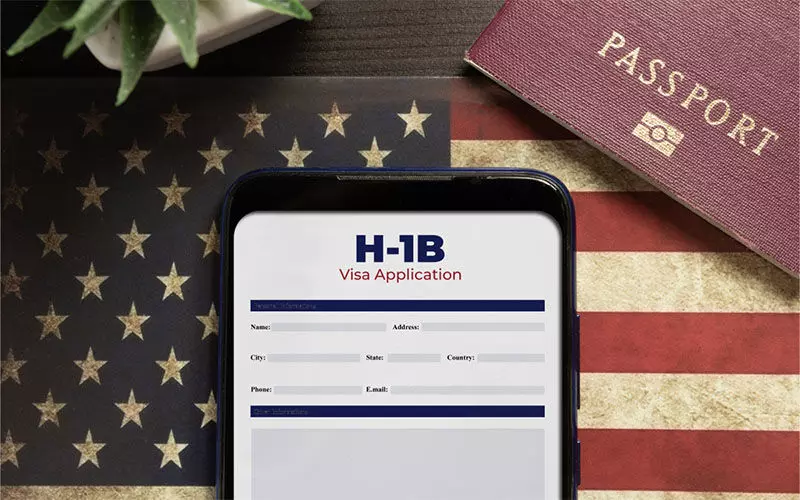Good news for Indians, US changes H-1B visa program; here is how it will help professionals
These updates aim to modernize the visa system, create jobs, and benefit both U.S. employers and international professionals
By Sri Lakshmi Muttevi
Representational Image.
United States: Just three days before Donald Trump’s swearing-in ceremony on January 20, the United States Department of Homeland Security (DHS) implemented significant changes to the H-1B visa program and other non-immigrant visas.
These updates aim to modernize the visa system, create jobs, and benefit both U.S. employers and international professionals eager to contribute to the nation's success.
Indian professionals, who accounted for 72.3% of the 386,000 H-1B visas issued in 2023, are expected to be significantly impacted by these changes. Each year, thousands of Indian techies move to the U.S. under the H-1B visa, and the revised rules are likely to further streamline their transition.
As the majority of H-1B visa holders, Indian professionals are expected to benefit greatly from these changes.
Key improvements include smoother transitions from education to employment, expedited processing for renewals and extensions, and increased stability for families through longer spousal work permit extensions.
What is the H-1B Visa?
The H-1B is a non-immigrant visa that allows U.S. employers to hire highly educated foreign professionals for "specialty occupations" requiring at least a bachelor’s degree or its equivalent. The visa is initially issued for three years and can be extended up to a maximum of six years.
Key Changes to the Program
1. Flexibility for F-1 Visa Holders:
Students on F-1 visas transitioning to H-1B will receive an automatic extension of their F-1 visa until April 1 of the relevant year. This allows international students to gain valuable work experience in the U.S.
2. Proof of Qualifications:
Employers and employees must demonstrate that the candidate’s qualifications match the specific job role being filled.
3. Specific Role Requirements:
Employers must justify the necessity of the position for an H-1B visa holder, preventing speculative visa applications without defined roles.
4. Alignment of Labor Condition Application (LCA):
LCAs must align with H-1B petitions, ensuring compliance with U.S. legal and procedural requirements.
5. Streamlined Processing for Prior H-1B Holders:
Quicker processing for individuals previously approved for H-1B visas. Extends eligibility to beneficiaries with a controlling interest in the petitioning organization under certain conditions.
6. In-Country Visa Renewals:
H-1B visa holders can now renew their visas without leaving the United States.
7. Faster Extension Processing:
USCIS will provide faster processing times for H-1B extension applications.
8. Spouse Work Permit Extensions:
Automatic extensions for work permits of H-1B holders’ spouses increased from 180 days to 540 days.
9. Cap Exemptions for Research Organizations:
Nonprofit and government research organizations now qualify for H-1B cap exemptions if research is a "fundamental activity," even if it is not their primary focus.